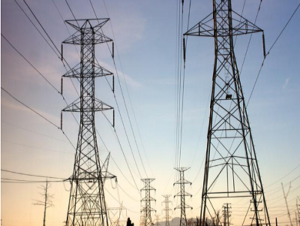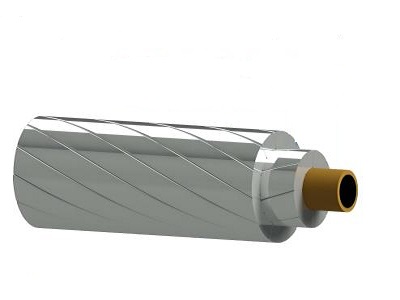In particular, ACCC conductors have been used to increase the efficiency of the re-conductor portion of the transmission grid by 30% or more.
ACCC cables use lightweight, small-size carbon fiber composite cores. It increases the load-bearing capacity of the overall material and reduces the core volume of the new ACCC cable. ACCC cables can provide double the power of traditional cables, effectively solving the problem of cable sag caused by high temperatures.

While aluminum strands are fully annealed to provide the highest degree of electrical conductivity of any aluminum material available today, the composite core material has a coefficient of thermal expansion that is approximately ten times that of steel.
Application of ACCC Conductor
ACCC aluminum conductor composite core is the latest type of stranded conductor, which is primarily used in overhead transmission lines. Under the same conditions, it has twice the capacity of ACSR.
ACCC conductors feature a hybrid carbon fiber and glass fiber core embedded in a high-performance epoxy matrix. The central carbon-fiber core consists of tens of thousands of high-strength, high-modulus unidirectional carbon fibers surrounded by a protective glass fiber layer. The outer layer of fiberglass increases toughness and flexibility, while also providing a barrier to electrical current.
ACCC conductor hybrid core is not only twice as strong as steel but 70% lighter. The lighter weight allows ACCC conductors to use approximately 28% more aluminum without adding weight or diameter.
Advantages of ACCC Conductors
Compared with the same diameter ACSR cable, it can double the current carrying capacity. Effectively solve the problem of cable snagging. They can work at higher temperatures, up to 200 madigiri Celsius. And the core is corrosion resistant and there are no bi-metallic corrosion problems. Because it can provide higher current-carrying capacity and effectively reduces engineering costs.
Carbon fiber composite core main raw material for polypropylene acrylic carbonized carbon fiber and high temperature curing resin, carbon fiber filament longitudinal arrangement, while the resin will be carbon fiber filament integrated into a whole. Nthawi yomweyo, there is a layer of protection on the surface of the composite core to prevent corrosion of the composite core in the atmospheric environment, and the role of external aluminum wire.
Carbon fiber composite core has the following characteristics
① Small Density
Carbon fiber composite core density is only 1/4 of the ordinary steel core
② Large Tensile Strength
Carbon fiber composite core tensile strength of up to 2400MPa, up to ordinary steel core times.
③ Good Heat Resistance
Carbon fiber composite core elongation at high temperatures is much smaller than ordinary steel core.
The above features 1, features ② determines the use of carbon fiber composite core at lower temperatures under the arc droop is much smaller than ordinary steel core aluminum stranded wire, features ③ determines the use of carbon fiber composite core at higher temperatures under the arc droop growth is smaller. Carbon fiber composite forest wire external aluminum wire is generally heat-resistant aluminum alloy wire or soft aluminum wire.
When using heat-resistant aluminum alloy wire, with high mechanical strength, conducive to the construction of the wire, but its resistivity is slightly higher than conventional aluminum wire, resistance loss is about 5% higher, when using soft aluminum wire, the resistivity is not larger than conventional aluminum wire, but the material is softer, easy to damage during construction.
The allowable operating temperature of heat-resistant aluminum alloy wire and soft aluminum wire is higher than that of conventional aluminum wire, so the conductor can improve the transmission capacity by increasing the operating temperature.
ACCC cable technology allows transmission companies, power companies, and power plants to replace the corresponding transmission lines without needing special installation skills and equipment or modifying cable racks. Aluminum conductor steel core (Mtengo wa ACSR) and other traditional transmission cables use a steel wire core, primarily based on a traditional 1898 design.
